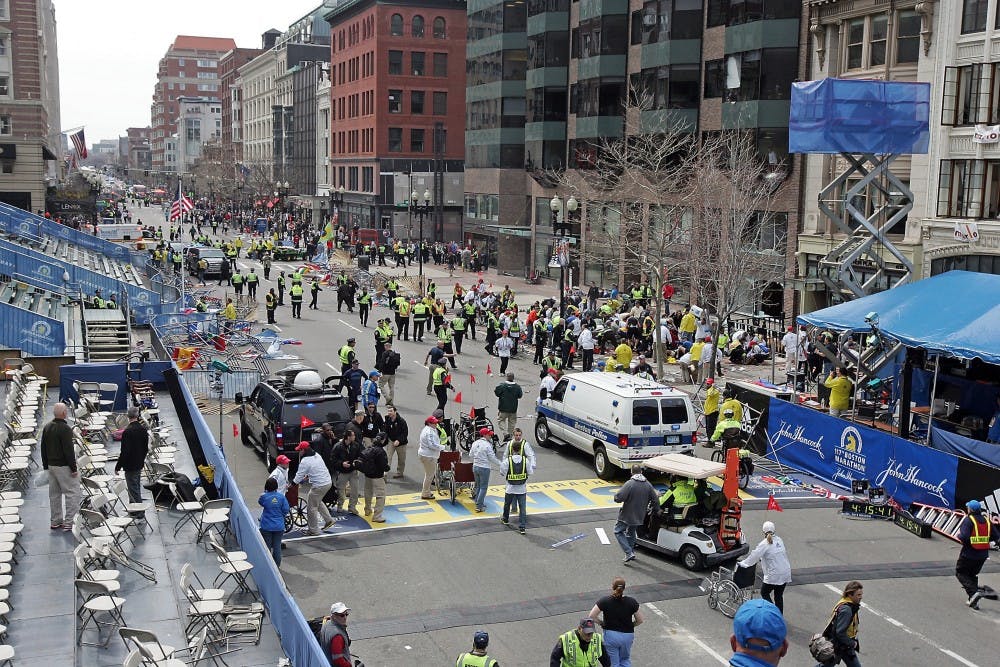Although police have yet to find the faces behind the Boston tragedy heard around the world, MSU experts say based on their research, those responsible for the Boston Marathon bombing are likely to be identified soon, thanks to a duffle bag.
Two homemade bombs constructed from pressure cookers, containing nails and ball bearings were hidden in dark-colored nylon or duffle bags and exploded in the heart of Boston during the city’s iconic race Monday afternoon, killing at least three and injuring more than 170, according to numerous media reports.
At least three MSU students competed in the marathon, including finance sophomore Jonathon Geer, graduate student Cody Harlacher and hospitality business senior Benny Ebert-Zavos, and all are safe.
Several students also had parents running in the race.
University Relations reported it has not heard of anyone from MSU harmed in the attack.
David Foran, director of MSU’s Forensic Science Program, conducts research experiments with homemade bombs.
His research found if a makeshift bomb exploded in a backpack, DNA tests could determine who created the bomb every time.
In the Boston bombing case, Foran predicts investigators will be able to use similar research methods to uncover suspects.
“Pieces of the duffle bags would be good to swab for DNA,” he said. “There’s a chance that there would be some on the pressure cookers themselves.”
While DNA traces on the pressure cookers would be ideal, Foran said fingerprints on bombs often are destroyed during detonation because of high temperatures.
Foran also researches triggering devices, such as a cell phone, which he predicts suspects might have used to detonate bombs in Boston.
Criminal justice professor Steve Chermak, an expert in domestic terrorism, said this type of bomb likely was a new one for police, adding the suspect probably researched it on the Internet.
An estimated 27,000 people ran the race.
Chermak said a reason the bomb might not have exploded when the most people were near the finish line was because the culprit might not have been able to predict how long it would take for the pressure to build up inside the cooker before it would explode.
Investigators are asking anyone who might have seen someone carrying a heavy dark-colored bag at the marathon to contact authorities.
Despite the bombing, runners in the Lansing Marathon this weekend are undeterred.
Coordinators of the Lansing Marathon issued statements reassuring runners the event still will take place this weekend and participants will be safe.
Environmental economics and policy junior Eva Sabolcik said she still plans on volunteering at the event because police are increasing their presence in Lansing this weekend.
“With the size of the city and so much security going up in the wake of the attacks, I don’t think we’ll be a target,” she said.
Residence Education and Housing Services also sent out an email to students encouraging anyone affected by the Boston attacks to contact resident hall staff or the MSU Counseling Center.
Support student media!
Please consider donating to The State News and help fund the future of journalism.
President Barack Obama will visit Boston on Thursday to speak at a memorial service, according to a White House statement.
Discussion
Share and discuss “Duffel bag could provide clues for Boston bomb” on social media.







